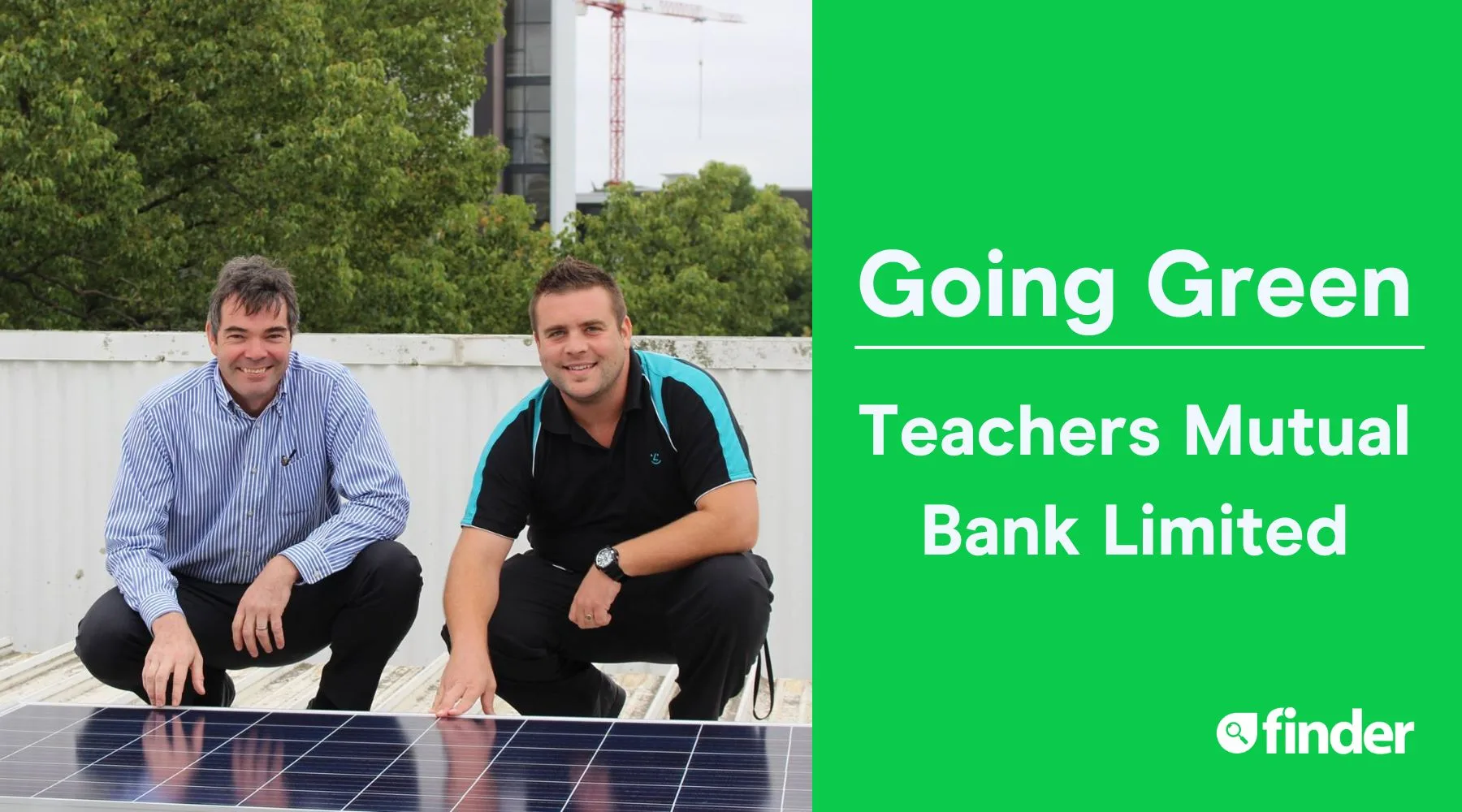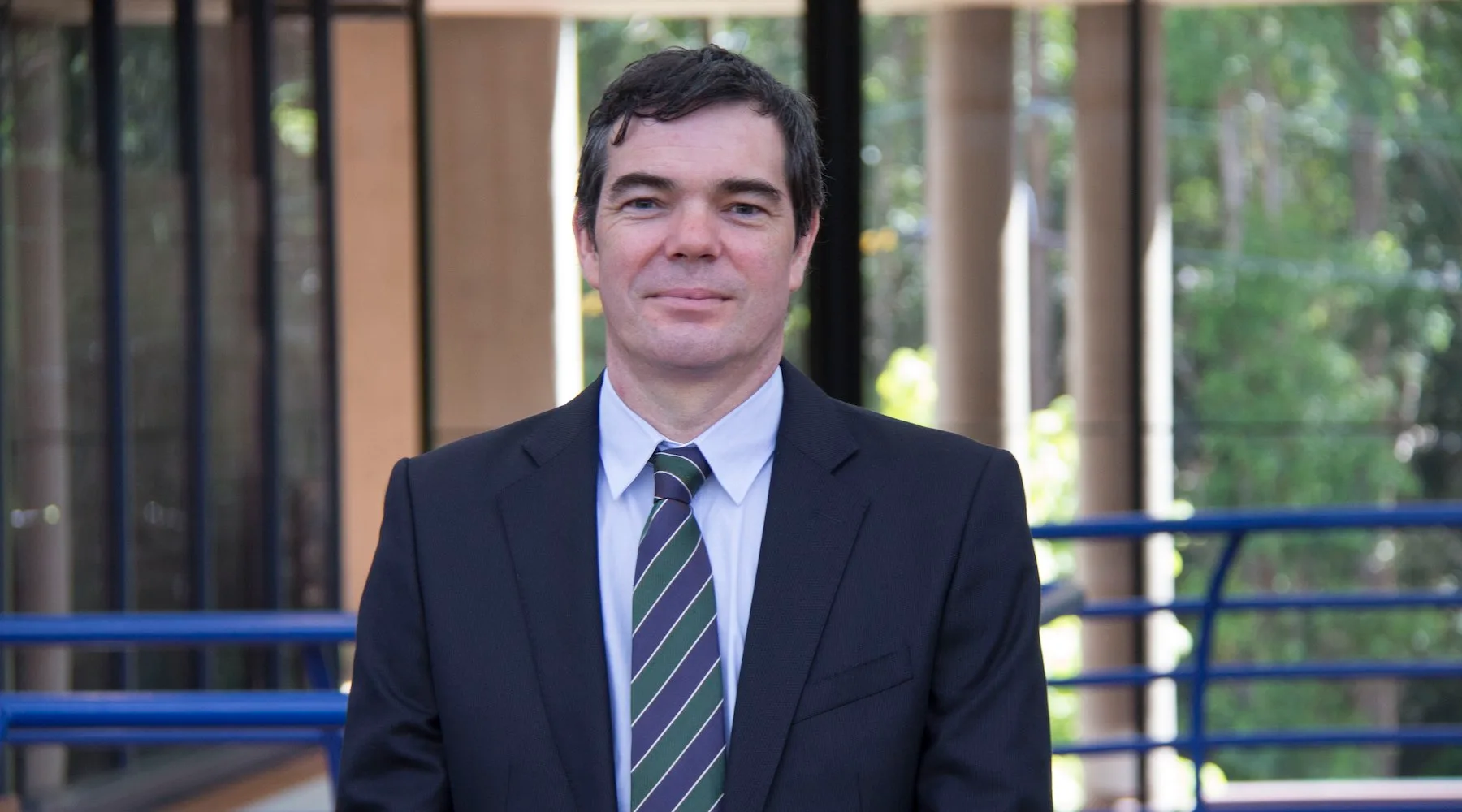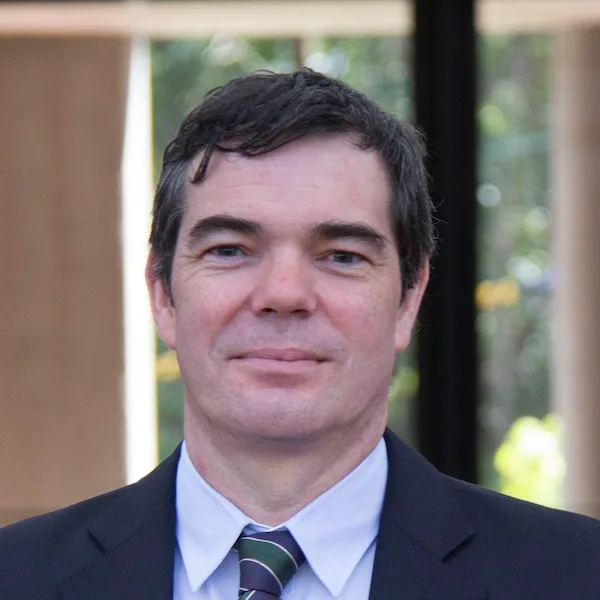Going Green: Teachers Mutual Bank Limited

Teachers Mutual Bank Limited has focused on sustainability for over 10 years. Here's how its approach has led to greener accounts, products and operations.
Teachers Mutual Bank Limited is one of the largest customer-owned banks in Australia, with 5 brands that focus on different industries: Teachers Mutual Bank, Firefighters Mutual Bank, Health Professionals Bank, UniBank and Hiver.
It operates with 100% renewable energy, including over 600 solar panels on its buildings.
Its strong environmental, social and governance (ESG) criteria also means it doesn't invest any money into fossil fuels, gambling, alcohol, tobacco, military activity and a long list of other industries.
Teachers Mutual Bank is the only Australian bank with 5 products accredited by the Responsible Investment Association of Australasia (RIAA).
It's also been listed as one of the World's Most Ethical Companies, is a certified B Corp bank and won Finder's Green Bank of the Year Award in 2022, after being finalists for both 2021 and 2020.
To find out more about the journey so far (and what's next), we chatted to Teachers Mutual Bank's head of socially responsible banking, Corin Millais.

Corin Millais, head of socially responsible banking at Teachers Mutual Bank. Image: Supplied (Teachers Mutual Bank Limited)
1. Let's start off by talking about the sustainability journey at Teachers Mutual Bank. What has that process has been like?

We've worked on sustainability for more than a decade. So I think we've got the history of trying to lead and promote that work. And that gives you experience and learning over time.
Mutual [banks] are already predisposed to looking at sustainability and community, being kind of member-led, not profit[-led] banks. But a concerted, strategic plan to drive that is needed.
When we became a bank in 2012, we set some strategic directions that have been a North Star for us. We had a commitment to meet some global standards, such as the corporate responsibility index and to be named one of the world's most ethical companies.
That's sort of been the story for [over] 10 years, of having a high bar and always trying to maintain and exceed that.
And now these issues are very mainstream and very competitive and very strategic... it's great to see the wider industry seeing the strategic benefit of being in ESG or sustainability.
2. Teachers Mutual Bank has 5 products accredited by the RIAA. Can you share a bit about what that means and the process you went through for accreditation?

We've always taken an approach that makes sure the whole bank is sustainable and not just pockets [of it]. I think that's more critical in the era of greenwashing.
But for us, I'd say pretty much everything we sell – in terms of mortgages and retail deposits – is certified by the RIAA. It's probably the gold standard of responsible investment.
It's a product-based thing and that's almost 100% of everything we sell… apart from credit cards and personal loans.(Editor's note: Credit cards, personal loans, insurance and similar products aren't eligible for RIAA certification due to the ways they are structured and used.)
The products [that are certified] go through a rigorous third-party verification for responsible investment rules, and a trademark certificate is applied to that.
It's a bit like a Fairtrade logo or an organic logo for the product.
What it means for the consumer is that every mortgage you buy and every deposit you make has clear, responsible investment rules around it. And it would be clear, when somebody deposits money with us, where that money goes. And if we lend them the money, where it comes from.
We don't have investments in the fossil fuel industry, we don't have investments in polluting companies and the money essentially is certified and it's clean on other levels and meets the highest standards.
3. There has recently been discussion around financial institutions investing in gambling and other industries that many people wouldn't consider ethical. I know the Teachers Mutual Bank website lists what it doesn't invest in. I wonder what your thoughts are on the lack of a clear definition of "ethical" in this context.

It's a good question, because there are lots of definitions of ethical, sustainable, green. And I suppose the way that's sort of addressed is either you do it in PR or you do it in a kind of credentials way.
As there's a massive market in ESG... I think the regulators are concerned about greenwashing.
We're seeing some [related] definitions coming in from the ACCC and ASIC, but greenwashing is about misrepresentation.
So if polluting companies sell a few green trinkets, then that's sort of going to be found out quite quickly.
But I think the answer is external verification and standards that give people the credentials and the trust – in the same way that if you buy chocolate and it's got the Fairtrade logo, you've got some reassurance that there's an independent standard.
That's been our approach: to avoid greenwash and focus on the standards.
And probably over time, there'll be a winning out of the market between companies who are sort of pretending to do it and those who've got those standards.
4. Teachers Mutual Bank also has B Corp certification. Can you talk a bit about that?

B Corp certification for us means that every single thing in the bank that we do… we have a certification for the entire shop, not just the stuff that we sell on the shelf. And so if you are getting a credit card from a B Corp bank, that's probably the gold standard of sustainability accreditation.
I would say that between B Corp and RIAA and World's Most Ethical Companies, we may be answering 500 or 600 questions a year [about our sustainability and ethical practices]. I mean, it's a forensic review… And that is the assurance you get for consumers that the claims and the actions match up to each other.
I think people who are busy and hard-pressed, they want to know their bank works effectively and they're running ethically and that it's all happening without even noticing.
And that's a hallmark of sustainability… we're not doing it to sell a few green loans or get a bit of PR. We're doing it because we think the whole bank should be run sustainably and at a socially responsible level, regardless of whether there's consumer demand. We just think it's the right thing to do.
5. In the banking industry, what is the change that you would like to see happen in the next in the next few years in Australia?

I think in the banking industry, ESG is now mainstream for the majors and also for the mutuals.
What we're seeing emerge from the KPMG Mutuals Industry Review is that ESG, or sustainability, is a critical piece of strategic competitive advantage.
So the banking leaders for the next 5 years will have to have ESG as core to their strategy and governance and board and impact.
I think the challenge for banking sector is lead or lose. And we have to keep on leading each year.
We're ahead of the game so far, but it's becoming a more competitive field, which is great.
So I think it's an exciting time for banks to really get on top of all these issues and lead on them.
Want more info and tips for making greener choices? Check out the Finder Green hub.
Images: Supplied (Teachers Mutual Bank Limited)
Sources
Ask a question
